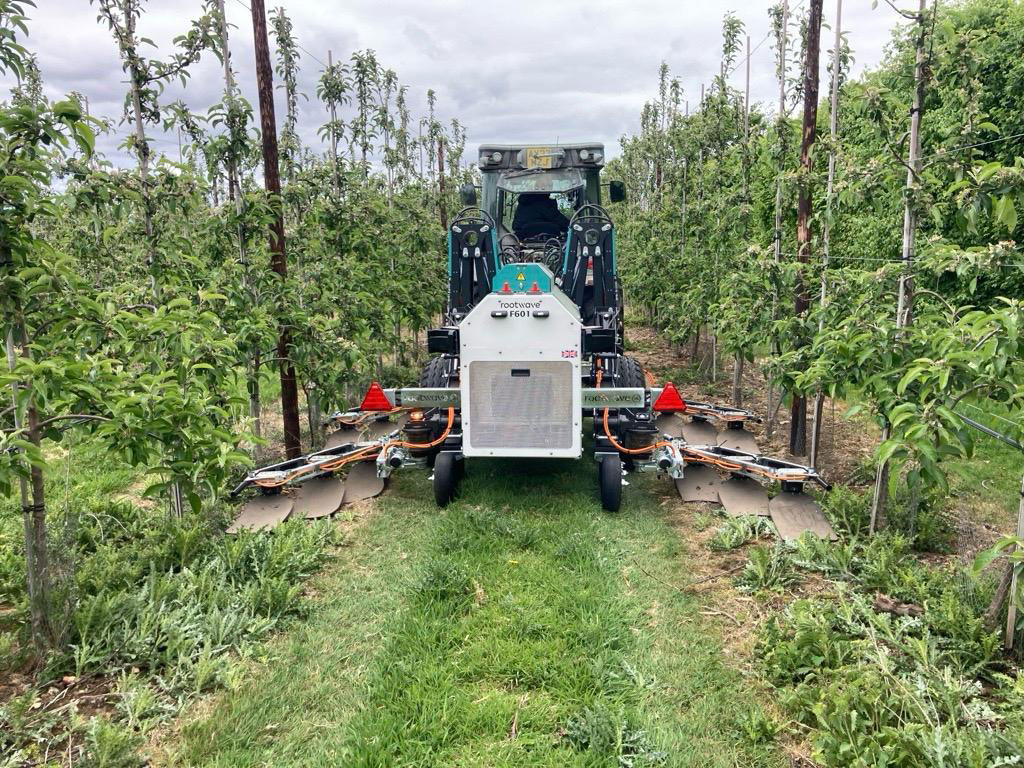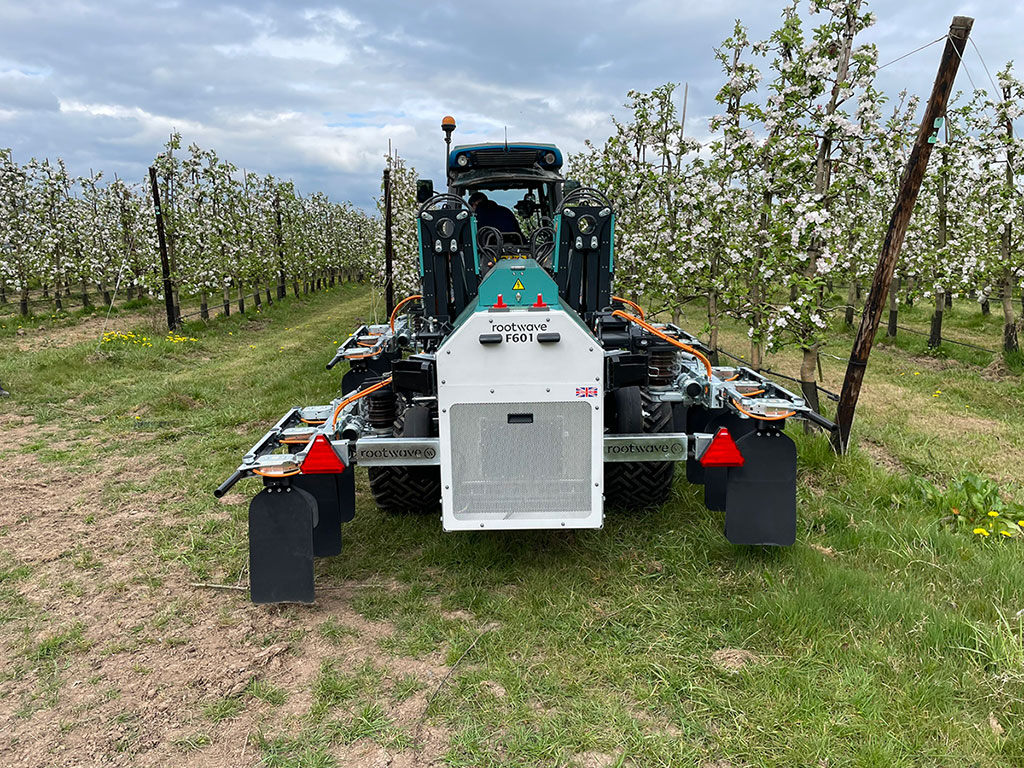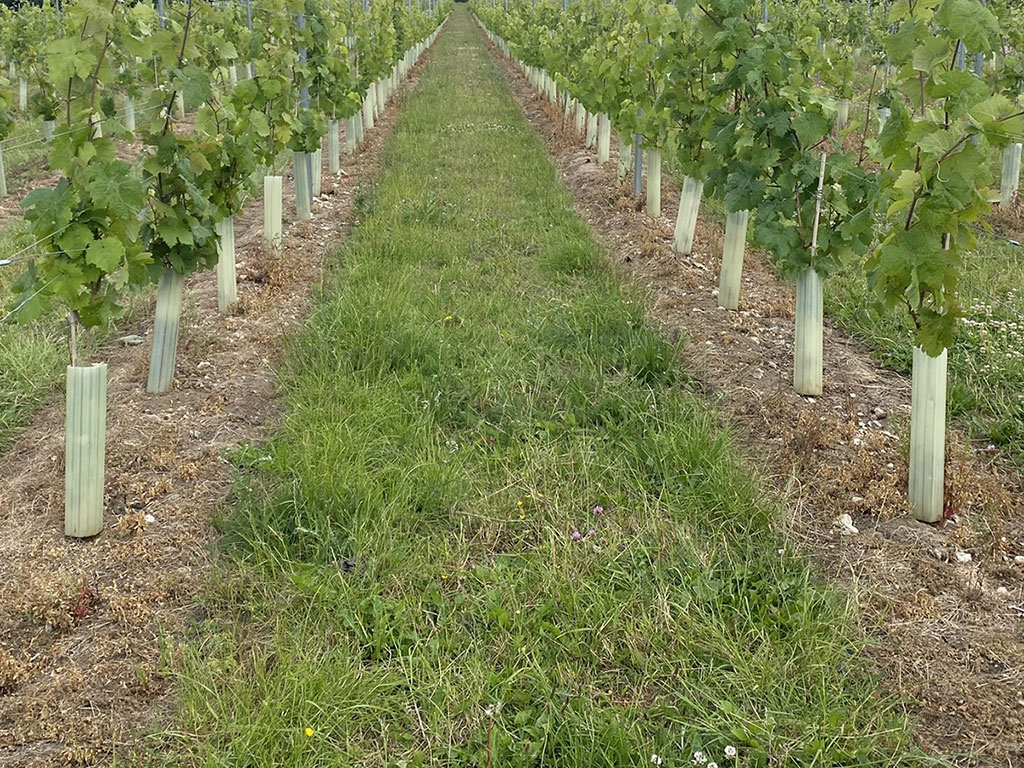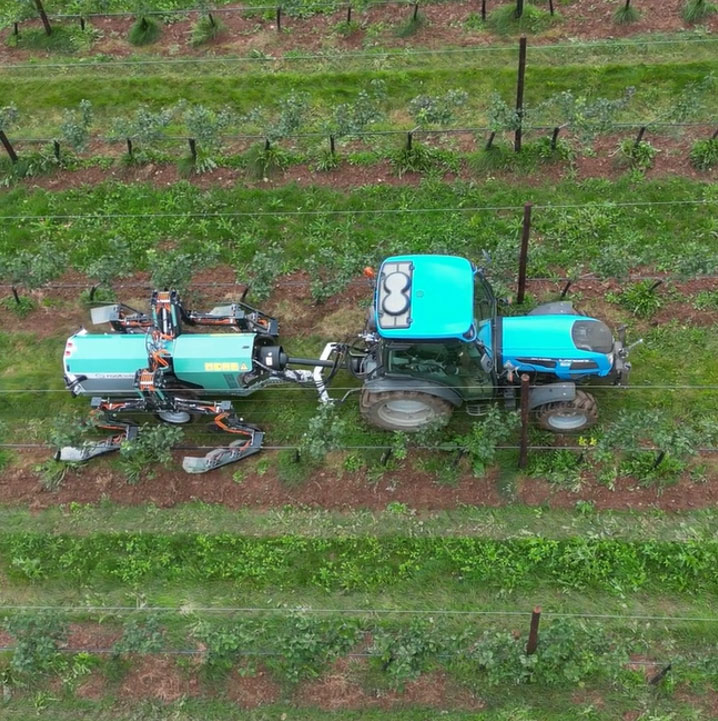
Novel electrical weed control technology reducing reliance on crop protection chemicals, offering an economic boost to farmers and growers, and environmental benefits to soil and water ecosystems.
The challenge
Weed control in crops, vineyards and orchards is of paramount importance to the food sector, while also traditionally being a substantial cost to farmers and growers.
Chemical herbicides have been used widely for generations but present a number of problems around their restrictive use in different weathers and locations – as well as their impact on safety, health and the environment. This is largely due to their potential to be absorbed by soils, water, crops, animals and humans.
With high costs and tighter regulatory controls around their application, alternative weed control solutions to herbicides are now essential for a more sustainable future in food production.
The Rootwave concept
The project, run by electrical weed control manufacturers RootWave, centres on a concept of using a weed’s natural resistance that turns applied electrical energy into heat, thereby boiling the plant from the root upwards in a safe and accurate manner.
By the targeted boiling of weeds and their roots at an earlier stage in their growth, the technology developed by RootWave also helps make continued weeding easier and allows the planted crops themselves to become more dominant in the soil.
Unlike sprayed herbicides, the technology allows users to undertake essential weeding during high winds and bad weather, as well as at any crop growth stage. The technique also removes the negative impact that chemical treatments have on soil health, allowing greater productivity and crop certainty in the longer term.
Project scope
The Farming Innovation Programme (FIP) project took place between February and July 2024, building on the successes from previous funding through the UKRI Transforming Food Production Challenge. The FIP project enables additional testing data to take the concept to its next stages.
Focused on the use of the system in vineyards and orchards, the project looked to further develop and refine the core technology as a standalone power module, as well as its potential for partnership with other technologies for different uses. Demonstration of the significant safety advantages of using 18Hz alternating electrical current used on weeds was also key in securing wider uptake.
The project has also helped demonstrate the commercial and ROI benefits to potential users, as well as the impact on productivity and more targeted weed control. Andrew Diprose, CEO of Rootwave, said: “An e-weeding concept has been considered for some time, but there wasn’t the drive to replace chemical use at those early stages. Now, with more questions being raised around herbicides and their environmental impact, there is no better time to utilise novel technologies to help bring greater sustainability to the sector.
“The work within the project aims to build further evidence of the technology’s economic and environmental benefits, while working with early adopters to generate further uptake across the sector and overcome perception barriers around the safety of electrical use. There is overwhelming evidence for farmers to adopt this technology.”
What’s next?
Following this project and wider development work, the RootWave solution now focuses on commercial growth and opportunities for achieving greater adoption.
RootWave is building out distribution for its product aimed at vineyards and orchards as well as working in partnership with agri-manufacturing experts Garford Farm Machinery to launch new products for vegetables and other row-crops.
Further partnerships for specific crop types are also being sought, with a broader industry opportunity to replicate the replacement of chemical weed treatment in more crop types and locations. This potential has been aided by the successful inclusion of RootWave’s technology in Defra’s Farming Equipment Technology Fund, which provided financial subsidy to farmers and growers for committing to innovative new technologies that enhance modern farming practices.
As the product progresses further, its core ethos around improving farming conditions has remained. Andrew added: “We’ve always wanted to focus on creating a product that addresses all the concerns that farmers and growers have around weeding. As nature grows its resistance to herbicides and regulators push further around safety of chemical use, modern day electronics can truly enable new alternative methods to succeed.”



